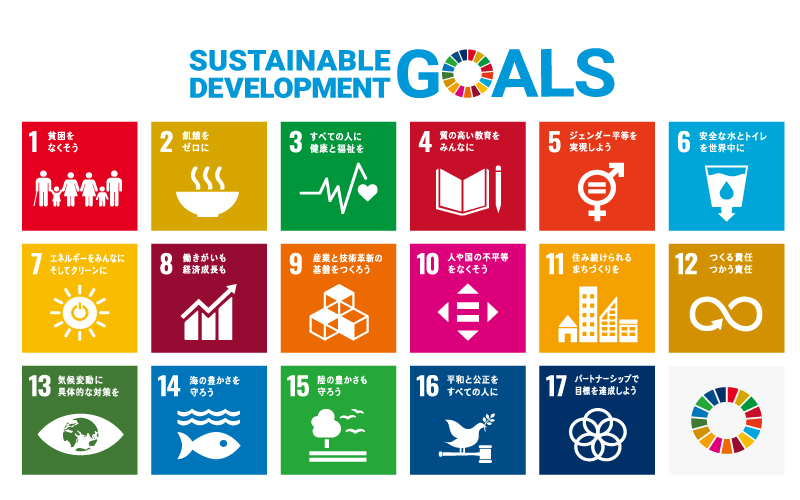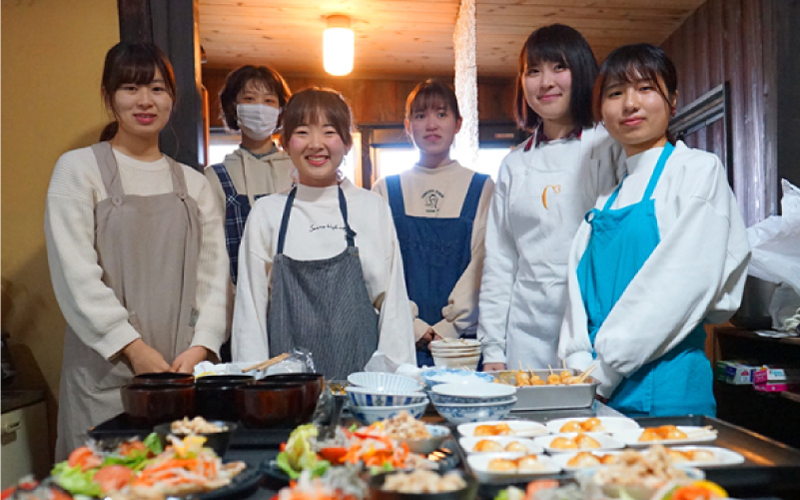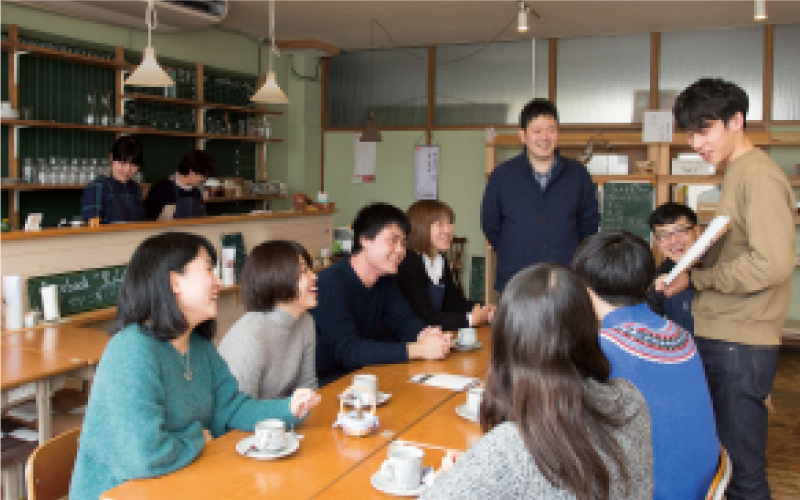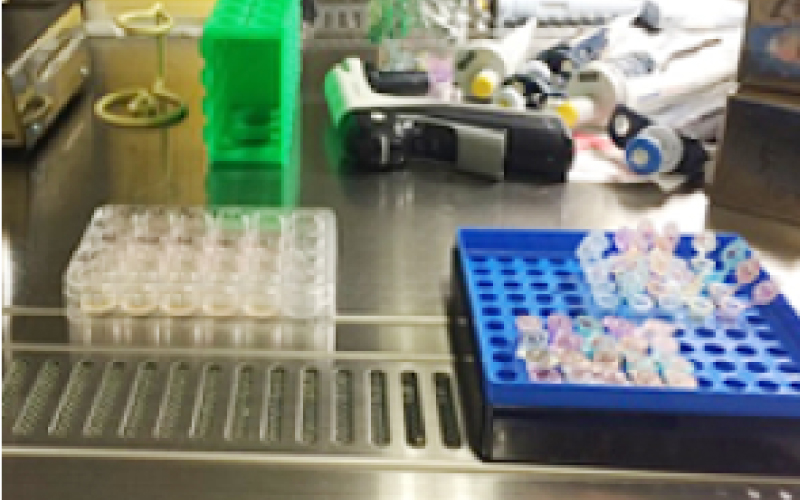
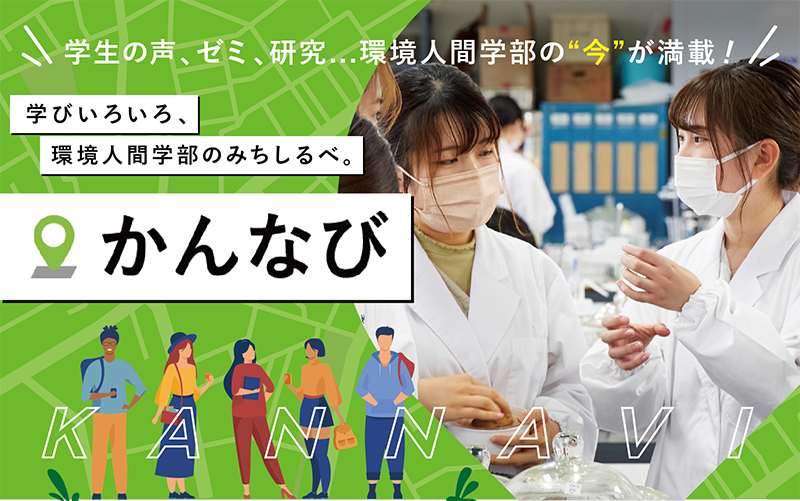
Special site for news and topics of the School (Japanese)
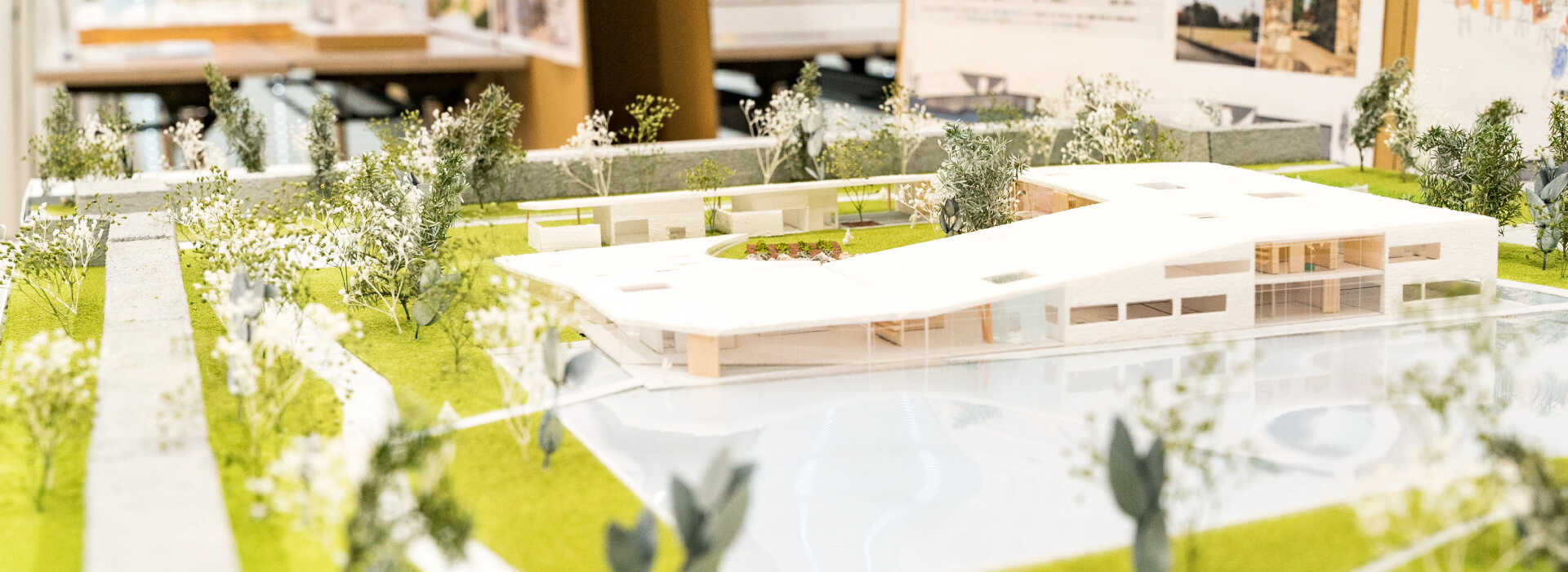
“To create a rich life and environment
for all people.”
What is the most important thing? We believe that our daily lives shared with those closest to us and the environment supporting us are very important. Moreover, economic mechanisms, political systems, and advanced technologies should be designed to enrich people's lives and the social and natural environments that support them.
The goal of the School of Human Science and Environment is to explore and realize a truly enriched lifestyle and environment for human beings. It is taking on this challenge by utilizing a broad perspective on anthropology and its expertise in a wide range of fields related to life and the environment.
Altruism is valued in the pursuit of these goals; the wealth of a few should not disadvantage others. Future generations should not be deprived of their livelihood for the sake of the present generation. Therefore, we are committed to transcending various boundaries to ensure that all people can have an affluent life and environment.
The School of Human Science and Environment consists of five specialized fields in its approach to human life and the environment. Students can choose one field to specialize in, while also learning a wide range of other specialties to cultivate a broad perspective necessary for real-life application.
Human Development
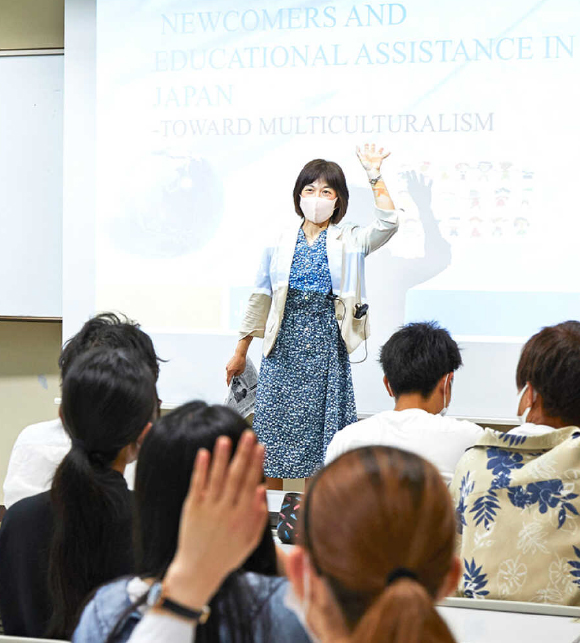
Research on the human development from childhood to older adulthood is conducted from various perspectives (i.e., psychology, human health science, and social systems). Students pursue their research on various “human growth and well-being" in the lifelong process in terms of “health,” “education,” and "psychology.”
Moreover, students consider environmental development for more desirable human growth and the promotion of lifelong health. This course will foster their ability to have a glocal perspective and to live in harmony with others while respecting individual ways of life. In addition, they will acquire knowledge-based thinking and practical skills that will foster the creation of essential human relationships and local communities.
International Cultural Studies
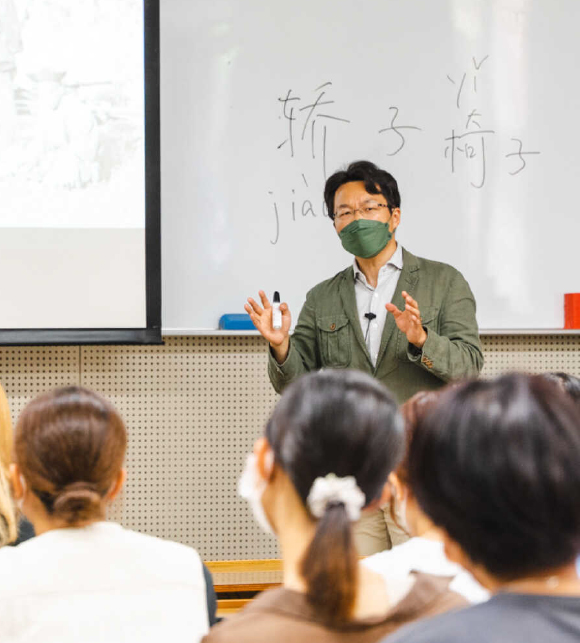
In International Cultural Studies, students learn English and other languages, the cultural background of each language, and the multicultural society and cultural phenomena created by international affairs. International Cultural Studies develops the students’ social communication skills and their ability to empathize with different cultures.
Language study and cultural and international understanding are are the major components of the course. The first and second years of study develop students’ international perspective through English, foreign languages, and information-related courses. The second and third years further improve their foreign language skills, promote their international understanding, and develop their ability to examine international issues through English Studies, Language and Culture, and Seminar for Human Scienceand EnvironmentⅠand II.
Social Design
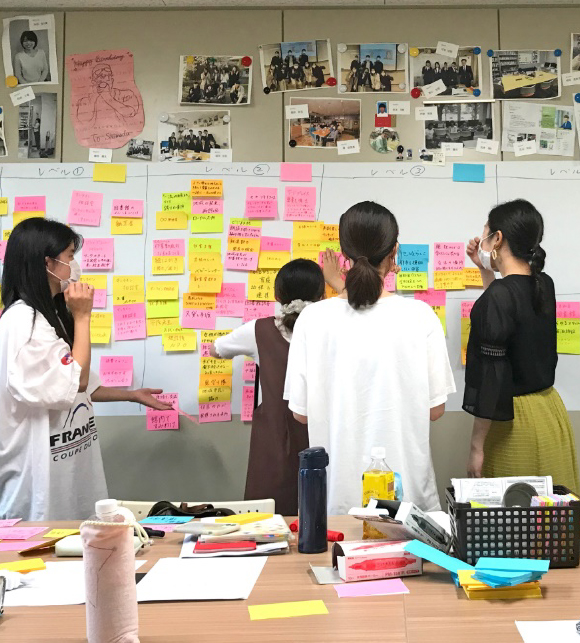
The Social Design course explores a wide range of issues related to life, including urban and rural areas, disaster prevention and welfare, media and tourism, and environmental economics and policy. Our educational philosophy is “to accurately grasp changes in society and communities,” and “to create a society where diverse people can live together as equals.”
To utilize the knowledge and ability to form a society and community, the following achievement goals are set: (1) to "understand communities" to bring forth a vision of how sustainable communities should be, (2) to "learn various policies" to create a better society, and (3) to "deepen communication" to solve various social issues.
Living and Natural Environmental Design
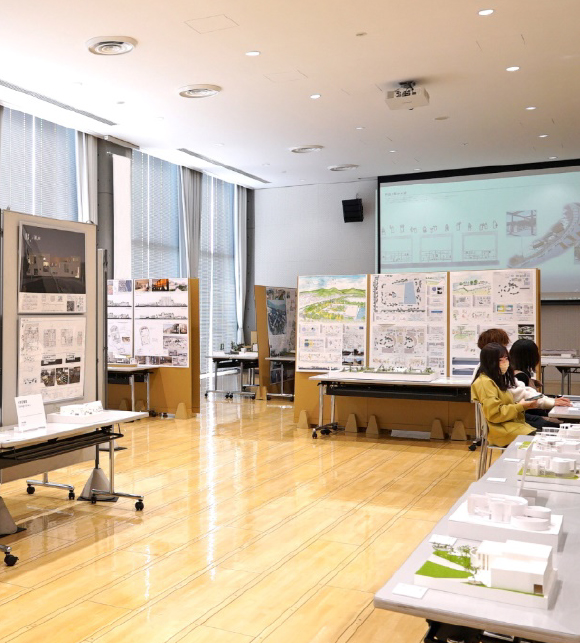
Students gain specialized knowledge to understand the natural environment and build better living environments through planning and analysis techniques, and knowledge of the temporal, spatial, and social characteristics of the natural and living environments. Based on this specialized knowledge, students can create comfortable living spaces and livable human societies.
Students will be able to comprehensively understand the natural and living environment from a lifestyle perspective and discover the problems and possibilities inherent in them. Furthermore, they will develop technical and planning skills to design sustainable and feasible environments and spaces.
Food Science and Nutrition
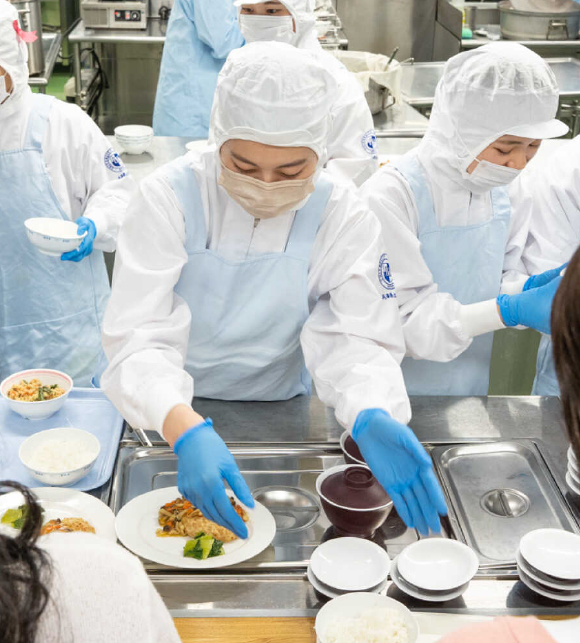
This is a "Registered Dietitian (RD)" training course. Students who complete the RD curriculum and pass the RD national examination can obtain their RD license before graduation. Those who earn the additional prescribed credits can also obtain the nutrition teacher's license. Admission and examination are independent of other courses. Proper nutrition is essential for maintaining good health and preventing illness and nursing care. In this course, students will study nutrition and food in a specialized way, and develop into professionals who can contribute to people's health and well-being.
This is the only dietitian training course in Japan that has been established in a school named “Human Science and Environment.” Students will also learn about food practices from an anthropological perspective, the positive interaction between the environment and people, and food sustainability from the perspective of SDGs. Through a well-developed curriculum and small-group learning, students can acquire specialized knowledge, practical skills, and research capabilities.
If you have a topic you would like to research at the undergraduate level, consider joining the graduate school, which can pave the way for you to become an expert in your field. The Graduate School of Human Science and Environment comprises faculty members of the School of Human Science and Environment, as well as the Institute for Natural Environment Research, where you can receive high-level research guidance.
Course Model 1: Human Science and Culture
This course is designed to provide students with a comprehensive insight into human beings and academic consideration of what constitutes a more desirable way of living and well-being through a multifaceted view of the impact of lifelong human development, mental and physical health, and culture on our lives in the context of social issues such as the declining birthrate, aging population, and poverty.
Course Model 2: Public Policy
Aiming to nurture human resources capable of carrying out research and practice in the field of public policy, this course enables interdisciplinary research based on the knowledge and methodology of social sciences combined with urban and rural planning and other fields.
Course Model 3: Architecture and Urbanism
By exploring the relationship between the environment and human life in the form of spatial expanses (interior, housing, architecture, region, and city), this course develops professionals involved in architecture, such as the built environment, building structure, architectural design, interior planning, housing planning, architectural planning, and urban planning.
Course Model 4: Nature and Environment
To elucidate various phenomena in the hydrosphere, atmosphere, and biosphere that constitute the natural environment, as well as their dynamics and interrelationships, students study various measurement methods based on forest science and biogeochemistry perspectives. They conduct research through field studies, experiments, and information science approaches.
Course Model 5: Food Science and Nutrition
Based on the relationship between humans and the environment, this model aims to create a healthy, rich, and sustainable food environment. By approaching complex areas related to people's food and health from multiple perspectives, we nurture "professionals in food and health" with excellent scientific thinking and practical skills.
Course Model 6: Symbiotic Natural History
Based on the conservation and sustainable use of biodiversity, this model considers and practices building desirable relationships between people and nature. Practical research is conducted using familiar nature as a field and the research facilities of the Hyogo Prefectural Museum of Nature and Human Activities and the Hyogo Prefectural Wildlife Management Research Center. Graduate School of Human Science and Environment (Symbiotic Natural History) (link)
Course Model 7: Advanced Medical Engineering
The course aims to advance students’ specialized knowledge and skills that contribute to the solution for various health, medicine, nursing, and nutrition issues. It aims to develop human resources who can independently and systematically use data acquisition and analysis techniques to improve people's health and quality of life. This model trains personnel who understand and master the concepts and basic techniques of health analysis, medical, nursing, and nutritional issues.


